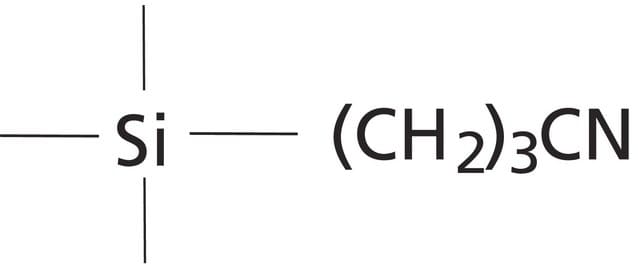52696-U
Discovery® DSC-CN SPE Tube
bed wt. 500 mg, volume 6 mL, pk of 30
About This Item
Recommended Products
material
polypropylene tube
composition
bed wt., 500 mg
packaging
pk of 30
extent of labeling
7% C loading
technique(s)
solid phase extraction (SPE): suitable
surface area
480 m2/g
volume
6 mL
matrix
Silica gel base material (irregularly shaped, acid washed)
matrix active group
cyano bonding, monomerically bonded
particle size
50 μm
pore size
0.9 mL/g pore volume
70 Å pore diameter
application(s)
food and beverages
separation technique
normal phase
reversed phase
Looking for similar products? Visit Product Comparison Guide
Related Categories
General description
Sample Matrix Compatibility: Aqueous solutions (biological fluids, water) when used in reversed-phase; or organic solvents, oils, and lipids when used in normal phase
- Monomerically bonded, cyanopropyl (7 %C), endcapped
- Can be used in either reversed-phase or normal phase
- Ideal for very hydrophobic analytes that may be irreversibly retained on more hydrophobic sorbents such as DSC-18
- Less retentive than DSC-Si or DSC-Diol when used in normal phase (organic matrices such as hexane or oils)
- Allows for the rapid release of very polar molecules irreversibly retained on very polar sorbent
Legal Information
Storage Class Code
11 - Combustible Solids
WGK
nwg
Flash Point(F)
Not applicable
Flash Point(C)
Not applicable
Choose from one of the most recent versions:
Certificates of Analysis (COA)
Don't see the Right Version?
If you require a particular version, you can look up a specific certificate by the Lot or Batch number.
Already Own This Product?
Find documentation for the products that you have recently purchased in the Document Library.
Articles
Reversed-phase interaction will retain most molecules with hydrophobic character; it is very useful for extracting analytes that are very diverse in structure within the same sample.
Our team of scientists has experience in all areas of research including Life Science, Material Science, Chemical Synthesis, Chromatography, Analytical and many others.
Contact Technical Service








